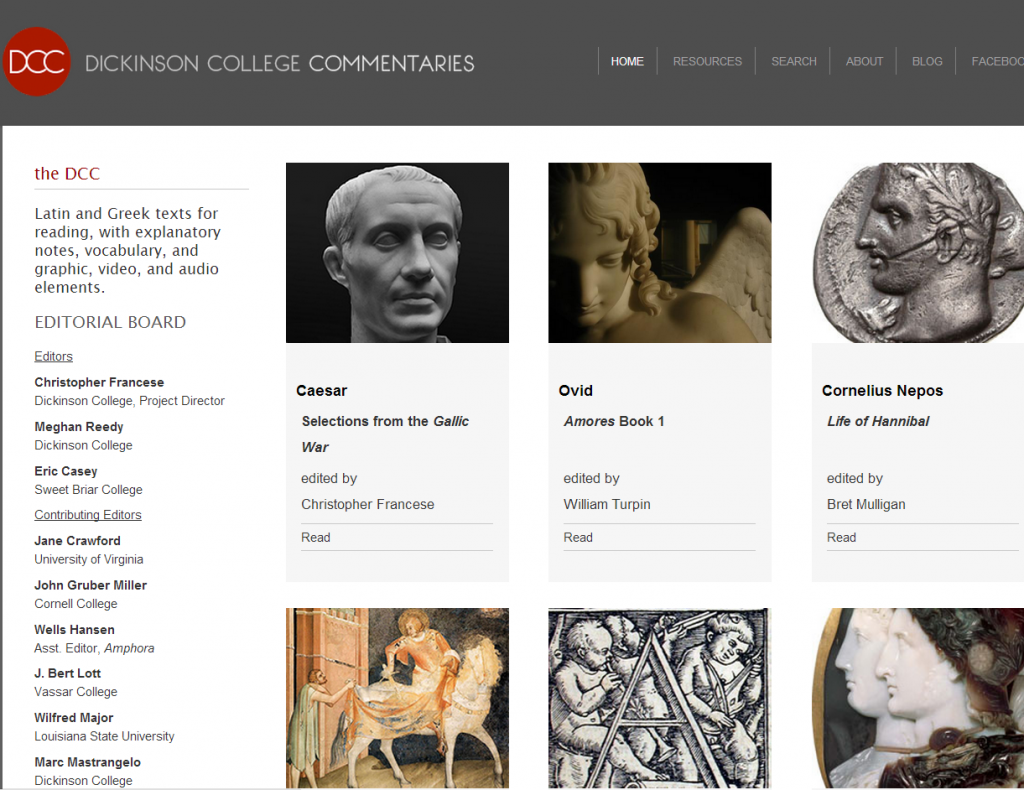
Dickinson College Commentaries
Latin and Greek texts for reading
DCC publishes scholarly commentaries on classical texts intended to provide an effective reading and learning experience for classicists at all levels of experience. Though they are born digital, the commentaries will also be available in print and e-book formats. In contrast to other digital projects that conceive of classical texts as a database, or foreground hypertext—focusing on chunking or linking the text—DCC aims at a readerly approach, and one responsive to the needs of readers, teachers, and students.
Read more
|
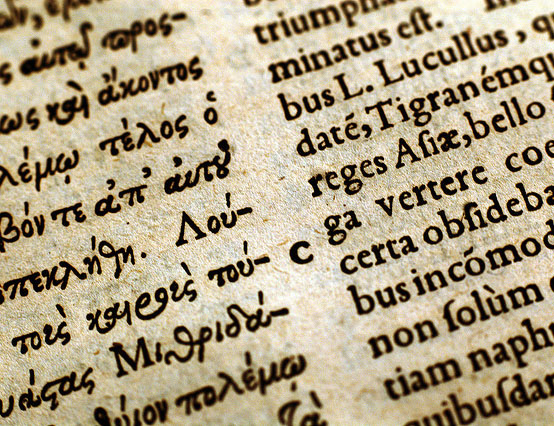
Greek and Latin Core Vocabulary Lists
The most common words in Latin and ancient Greek
These are words that are not normally glossed in the running vocabulary lists that go with texts in the DCC series. The Latin list is based on hand parsed data sets from the Laboratoire d’Analyse Statistique des Langues Anciennes, and Paul B. Diederich “The Frequency of Latin Words and Their Endings,” (Dissertation, University of Chicago, 1939). The Greek list is based on a subset of the comprehensive Thesaurus Linguae Graecae database, including all texts in the database up to AD 200, for a total of 20.003 million words.
Read more
|

Latin Poetry Podcast
Short Latin passages, discussed, translated, and read aloud
An occasional series begun in 2006, Latin Poetry Podcast includes recordings and discussion of excerpts from classical authors such as Vergil, Horace, and Catullus, and rarer pieces, inscribed poems, epitaphs, late antique authors. There are also occasional discussions of metrics, prosody, and pronunciation.
Read more
|
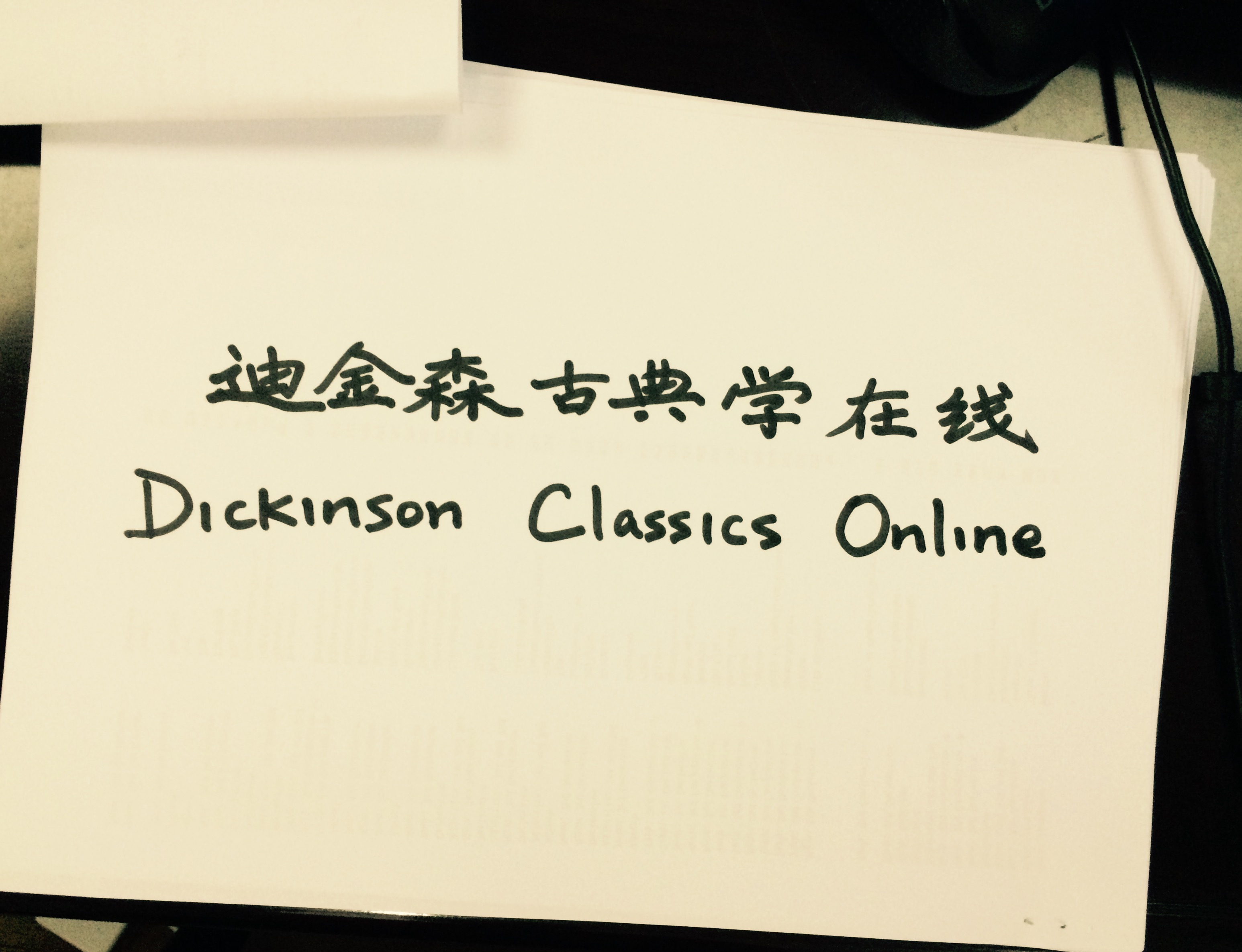
Dickinson Classics Online
Resources for Chinese students of the Greco-Roman Classics
At its initial launch in 2015 the site contains a Chinese version of the Core Latin and Greek Vocabularies from Dickinson College Commentaries, DCO’s parent site. This work was done by a team of distinguished Chinese scholars, all members of the DCO Editorial Board. The Editorial Board will oversee the development of essential infrastructure such as lexica and grammars, high quality language teaching tools for Latin and Greek, and expert commentaries and translations that make the classics fresh, relevant interesting to Chinese students. All resources will be provided free of charge on the internet, giving direct access to the words and ideas of the Greeks and Romans to millions of people for the first time. A reasonably priced mobile application will allow serious students to learn on a convenient and portable platform.
Read more
|
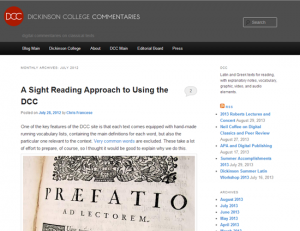
DCC Blog
Short essays on pedagogy and the commentary genre
The DCC blog is a place for reflection and discussion about how the commentary genre is evolving in a digital environment, and how digital media can be used in the reading and teaching of ancient languages. Contributing authors include members of the DCC editorial board, and other guest writers.
Read more
|
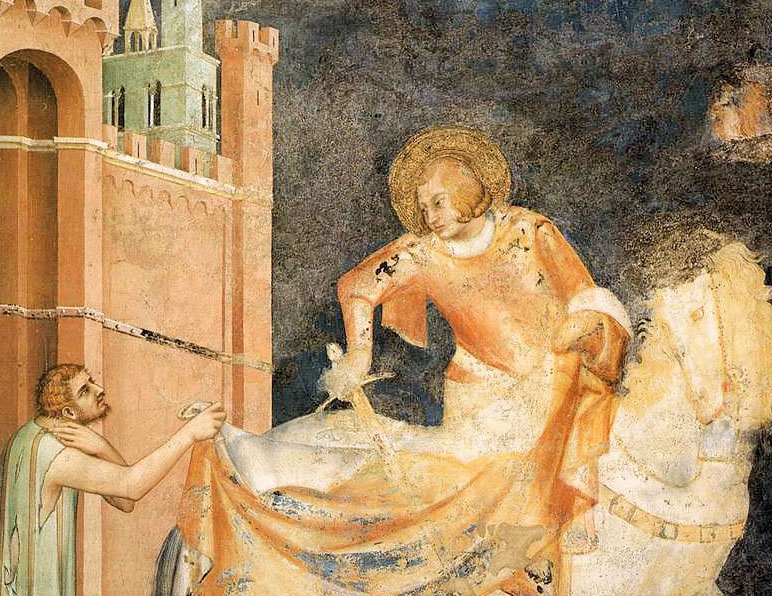
Sulpicius Severus, Life of St. Martin
Digital edition of the Latin text
Latin biography of St. Martin, Bishop of Tours (AD 316 or 317-397), written by Sulpicius Severus (ca. AD 363 – ca. 425). Martin was an enormously controversial figure his his own lifetime, and Sulpicius’ biography reveals the struggles between individuals and classes of people in fourth century Roman Empire with very different visions of what Christianity should be and how Christians should act in the world. Sulpicius occupies a cardinal position at the end of the classical tradition of biography and history, and at the beginning of the medieval.
Read more
|